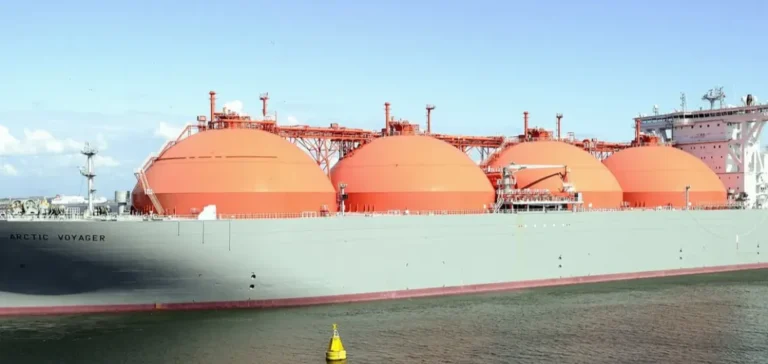Gaztransport & Technigaz (GTT) has confirmed it received an order from Samsung Heavy Industries (SHI) during the third quarter of 2025 to design tanks for a Floating Liquefied Natural Gas (FLNG) unit operating on the African continent. The project aims to deliver maritime liquefaction infrastructure without reliance on onshore facilities.
The contract awarded to GTT covers the design of a cryogenic membrane containment system for storage tanks with a total capacity of 238,700 m³. These tanks will be equipped with the Mark III technology, a solution developed by GTT and used in numerous liquefied natural gas (LNG) storage units worldwide.
Expertise mobilised for a strategic offshore project
The deal highlights GTT’s positioning as a technology provider for large-scale FLNG projects, in a context where several African countries are seeking to accelerate the development of their natural gas resources. By eliminating the need for onshore infrastructure, floating units allow for faster production start-up, particularly in remote or underdeveloped areas.
The partnership between GTT and Samsung Heavy Industries is based on a long-standing industrial relationship. This contract extends a series of collaborations between the two entities, with SHI being one of the world’s leading builders of LNG-specialised ships and offshore platforms.
Cryogenic technology and reliability at the core
The Mark III technology selected for this project is based on a cryogenic membrane system designed to ensure the integrity and safety of storage tanks in marine environments. GTT states that this solution delivers optimal performance in terms of thermal resistance and operational reliability.
The use of FLNG units helps meet growing demand for liquefaction capacity while avoiding the need for more complex and slower-to-develop onshore terminals. These units are particularly valued in regions undergoing energy industrialisation, where the rapid exploitation of gas fields is a strategic priority.
Development supported by major industrial players
In an official statement, Philippe Berterottière, Chairman and Chief Executive Officer of GTT, said that this order “confirms the trust of our long-standing partner Samsung Heavy Industries and illustrates the relevance of GTT’s technologies to support the development of high-performance, reliable and safe floating liquefaction infrastructure.”
The delivery and commissioning timeline for this FLNG unit has not been disclosed. However, GTT stated that the contract was added to its order book in the third quarter.






















